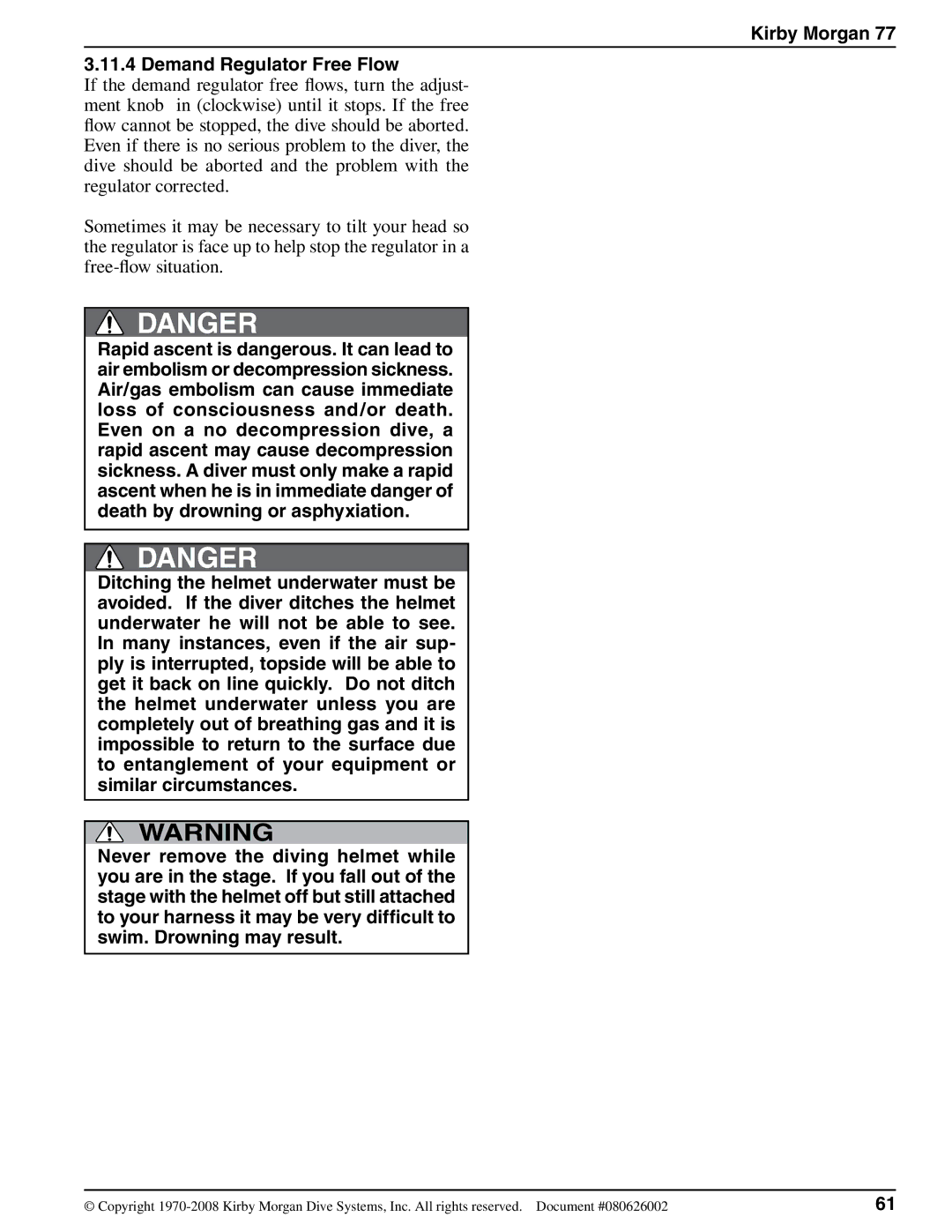
Kirby Morgan 77
3.11.4 Demand Regulator Free Flow
If the demand regulator free flows, turn the adjust- ment knob in (clockwise) until it stops. If the free flow cannot be stopped, the dive should be aborted. Even if there is no serious problem to the diver, the dive should be aborted and the problem with the regulator corrected.
Sometimes it may be necessary to tilt your head so the regulator is face up to help stop the regulator in a
![]() DANGER
DANGER
Rapid ascent is dangerous. It can lead to air embolism or decompression sickness. Air/gas embolism can cause immediate loss of consciousness and/or death. Even on a no decompression dive, a rapid ascent may cause decompression sickness. A diver must only make a rapid ascent when he is in immediate danger of death by drowning or asphyxiation.
![]() DANGER
DANGER
Ditching the helmet underwater must be avoided. If the diver ditches the helmet underwater he will not be able to see. In many instances, even if the air sup- ply is interrupted, topside will be able to get it back on line quickly. Do not ditch the helmet underwater unless you are completely out of breathing gas and it is impossible to return to the surface due to entanglement of your equipment or similar circumstances.
![]() WARNING
WARNING
Never remove the diving helmet while you are in the stage. If you fall out of the stage with the helmet off but still attached to your harness it may be very difficult to swim. Drowning may result.
© Copyright | 61 |
